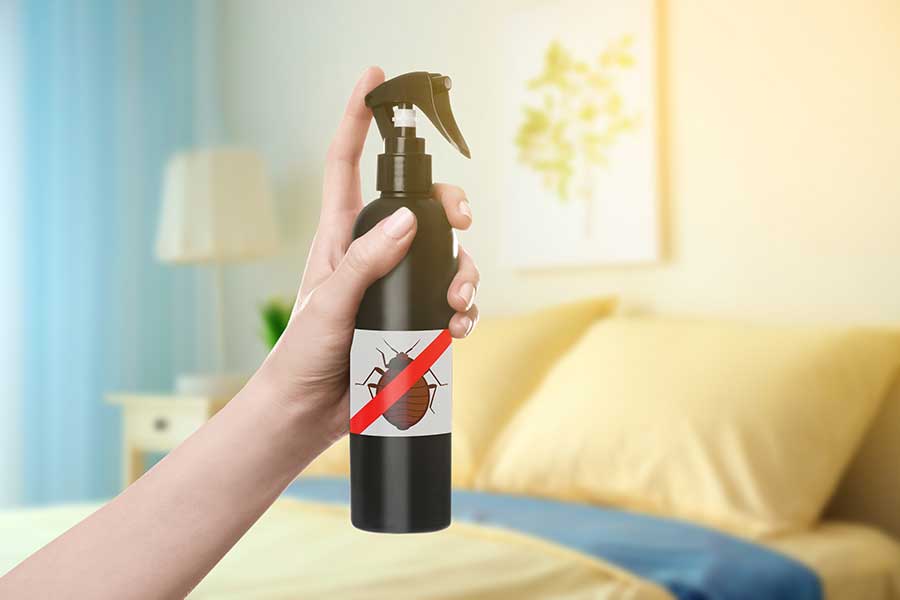
Bed bugs are a persistent and unwelcome problem, causing discomfort and stress with their itchy bites and elusive nature. While chemical treatments are commonly used to combat these pests, many people are seeking natural alternatives that are safe for their families and the environment.
Common Natural Prevention Methods
While some DIY or natural remedies can help prevent bed bugs, they won’t be able to treat an infestation that’s already present. Here are some of the most common natural prevention methods:
- Diatomaceous Earth: Diatomaceous earth absorbs moisture and oils from a bed bug’s exoskeleton. When sprinkled on a mattress or in wall cracks, it can come into contact with the bugs.
- Essential oils: Despite their rising popularity, essential oils such as peppermint, tea tree, and lavender are not sufficient for repelling bed bugs when dealing with an active infestation.
- Petroleum jelly: Many believe that using petroleum jelly on bed frames and headboards will prevent bed bugs, but this approach is sadly not effective.
- Dryer sheets: The effectiveness of dryer sheets is largely anecdotal, and there is limited scientific evidence to support their use as a reliable method for preventing or eliminating bed bugs.
- Baby Powder: Baby powder is not a proven method for killing or repelling bed bugs. Unlike diatomaceous earth, which can dehydrate and kill insects, baby powder does not have the same physical properties.
Do You Have a Bed Bug Problem? We Can Help.
Click the button below to leave your information & we'll be in touch in an hour or less.
Does DIY Bed Bug Treatment Work?
While some of the methods mentioned might repel bed bugs to a degree, they are not sufficient to eliminate them. Bed bugs are resilient pests that often require more comprehensive solutions. Professional treatments, such as heat or insecticides, are necessary to control an infestation. Despite the allure of natural remedies, they lack the power needed to handle a serious problem.
How to Keep Bed Bugs Away
To effectively keep bed bugs at bay, implementing proactive measures is essential. Here are some key methods to help prevent these pests from invading your home:
- Monitor for Signs of Bed Bugs: Regularly check your bedding and furniture for signs of bed bugs, such as tiny reddish-brown spots or live insects. Catching the problem early can help prevent a small issue from growing into a widespread infestation.
- Inspect Second-Hand Items: Before bringing any used furniture, mattresses, or clothing into your home, thoroughly inspect them for signs of bed bugs. Carefully inspect seams, crevices, and folds where bed bugs might be hiding.
- Launder Regularly: Wash and dry bedding, curtains, and clothing at high temperatures to kill any bed bugs or eggs that might be present. Use the highest heat setting on your dryer, as heat is effective in eliminating bed bugs.
- Reduce Clutter: Keep your home tidy and reduce clutter, as bed bugs can hide in piles of clothes, books, and other items. Regularly vacuum floors and carpets to remove any potential hiding spots for bed bugs.
- Cover Your Power Outlets: Electrical outlets can be perfect hiding spots for bugs. Use a plug cover to block their access and keep them out.
Preventing Bed Bugs Naturally vs. Professionally
Preventing bed bugs involves knowing their signs, being careful while traveling, and examining used furniture before it enters your home. While natural methods might repel bed bugs, they aren’t foolproof. These pests are unpredictable and can infest any home at any time!
This is why it’s beneficial to consult a professional bed bug exterminator such as Griffin Pest Solutions. We can help you with both prevention strategies and treatment solutions to keep bed bugs from invading your home.
Back to Bed Bug Prevention